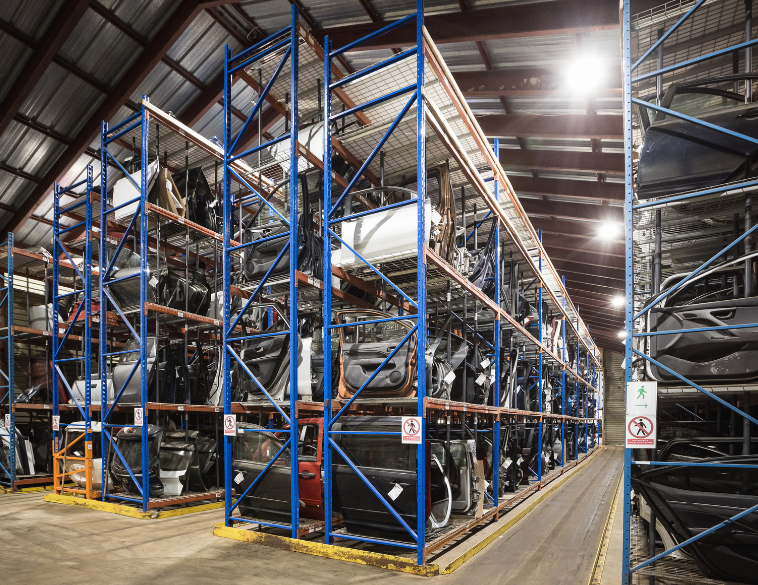Echo of automotive collision repair industry associations
This segment encompasses a collection of news pertaining to auto recyclers associations such as the Automotive Recyclers of Canada (ARC), the Ontario Automotive Recyclers Association (OARA) and the “Corporation des carrossiers professionnels du Québec” (CCPQ) and matters related to auto body legislation and non-productive tasks. The Automotive Recyclers of Canada (ARC) is a national trade association representing the interests of the automotive recycling industry in Canada. The organization works to promote the highest standards of safety and environmental stewardship, to increase public awareness of the economic and environmental benefits of automotive recycling, and to support members in the operation and growth of their businesses. ARC provides its members with access to various training and industry resources. The Ontario Automotive Recyclers Association (OARA) is a provincial association which serves as the voice of the automotive recycling industry in the province of Ontario, Canada. It was established to help promote and develop the automotive recycling industry and to address issues of health and safety, environment, and business. OARA works to represent the interests of its members in the automotive recycling industry by advocating for the appropriate regulation of the industry, and by providing industry-specific education and training. OARA also works to promote the use of recycled vehicle parts and materials as a cost-effective and sustainable alternative to new parts and materials. OARA is a member of the Automotive Recyclers Association of Canada. The CCPQ is an organization representing the interests of professional auto body technicians in Quebec. Its primary role is to promote and defend the interests of the automotive bodywork industry among various governments, industry associations, and consumers. More specifically, the CCPQ provides several services to its members, including continuing education programs, regulatory advisory and support services, and insurance and accident prevention programs. It also strives to enhance the quality of services offered by professional auto body technicians in Quebec by establishing performance standards and monitoring compliance with these standards. Ultimately, the CCPQ aims to promote the profession of professional auto body technicians in Quebec, ensuring members adhere to high ethical and professional standards. The organization offers high-quality services to consumers and safeguards the interests of professional auto body technicians in the province. One current challenge is related to automotive recycling, particularly the recycling of electric vehicle batteries.
Automotive recycling
Nowadays, automotive recycling remains a significant concern for the automotive industry, governments, and consumers. Here are some of the primary challenges: The growth of the electric automotive industry: With the increasing popularity of electric vehicles, the automotive industry faces new recycling challenges. The batteries in these vehicles contain environmentally hazardous materials, and their recycling can be expensive. Recycling companies must find ways to recover valuable materials while minimizing environmental impact; The rise in electronic waste: Modern vehicles contain a growing number of electronic components, meaning that the amount of electronic waste from recycled cars is increasing. Recycling companies must be equipped to recycle these electronic components while ensuring worker safety and minimizing environmental impact; Environmental regulations: Governments are imposing increasingly strict automotive recycling regulations, which can increase costs for recycling companies. Businesses must be able to comply with these regulations while maintaining profitability; Fluid and hazardous material management: Cars contain a variety of fluids and hazardous materials that must be managed appropriately during recycling. Recycling companies must be equipped to handle these materials safely and efficiently; Social responsibility: Consumers are increasingly concerned about the environmental impact of the products they purchase, including cars. Recycling companies must be able to communicate clearly about their recycling process and ensure materials are handled responsibly; Ultimately, automotive recycling is a complex issue that requires collaboration between governments, the industry, and consumers. Recycling companies must continue to innovate to find ways to maximize material recovery while minimizing environmental impact and preserving their profitability.
A roadmap for electric vehicle recycling
The recycling of electric vehicle batteries is an important issue, particularly for the Professional Auto Body Association of Quebec (CCPQ) for several reasons: The environment: Electric vehicle batteries contain potentially hazardous materials for the environment, such as lithium and cobalt. If these batteries are not recycled correctly, they can negatively impact the environment by polluting soils and groundwater. Consequently, the CCPQ must ensure members comply with environmental regulations regarding electric vehicle battery recycling; Safety: Electric vehicle batteries can also pose safety risks if not handled correctly during recycling. CCPQ members must ensure batteries are handled safely to avoid risks of leakage, explosion, or fire; Social responsibility: Electric vehicle batteries have a limited lifespan and must be replaced periodically. It is essential to ensure that used batteries are recycled responsibly and that the valuable materials they contain are recovered. By promoting electric vehicle battery recycling, the CCPQ can contribute to the sustainability of the automotive industry while meeting the expectations of consumers who are increasingly concerned about environmental and social issues; Costs: Recycling electric vehicle batteries can be costly for professional auto body technicians. CCPQ members must find ways to make recycling more profitable, such as finding buyers for the recovered materials or collaborating with other businesses to share costs. Additionally, the CCPQ can play a role in negotiating government grant programs to help fund recycling-related costs.
The financial abyss of out-of-stock auto body parts
The financial abyss of out-of-stock auto body parts within the automotive industry poses a significant challenge. When a body part is out of stock, it signifies that it is no longer available from suppliers and there is no immediate replacement at hand. This can lead to delays in repairing damaged vehicles, potentially damaging the reputation of auto body shops and their profitability. The issue is exacerbated by the fact that modern vehicles often feature intricate body designs and employ advanced lightweight materials such as aluminum, carbon, and carbon fiber-reinforced plastic, making parts more challenging to manufacture and replace. Moreover, automotive parts manufacturers tend to produce limited quantities of replacement parts for older vehicles, as demand for these parts wanes as vehicles age. The financial abyss of out-of-stock parts can significantly impact auto body businesses. They may be forced to source used parts or custom-manufacture them, substantially increasing repair costs. Additionally, this can result in repair delays, causing customer dissatisfaction and a subsequent loss of revenue for the businesses. To circumvent the financial abyss of out-of-stock parts, auto body shops must be proactive in managing their parts inventory by purchasing parts in advance or seeking alternative suppliers in case of stock shortages. Companies can also consider diversifying their offerings by providing part repair services instead of replacing them, or specializing in the repair and restoration of vintage automobiles, which have parts more difficult to find. Lastly, collaborating with automotive parts manufacturers to improve production and availability of replacement parts can also help alleviate the financial abyss of out-of-stock parts.


